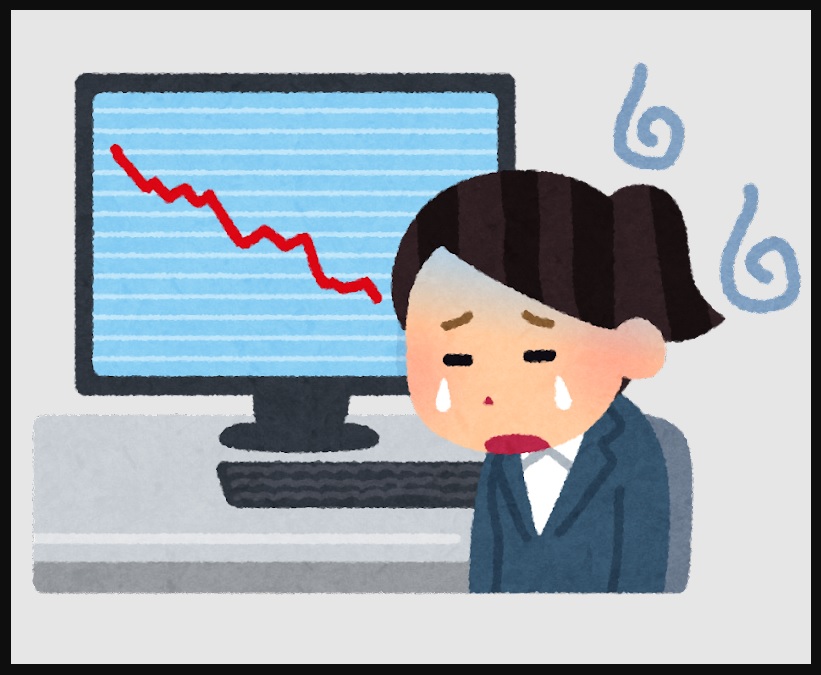「ザックリ|少額から不動産投資!REITの魅力とは?」
今日は【増やす力】
REIT(リート)の仕組み
についてお話します。
●REIT、それは家賃で回る分配金マシン~不動産の裏側で、ちゃっかり稼ぐ~

色んな投資商品を知ろうという事で
投資信託やFXなど
色々お話ししてきました。
今日は
『REIT(リート)』
についてお話しします。
雑誌などで見かけたことが
有るかもしれません。
これだけをメインに
投資してる人も少ないと思うので
ザックリ
知っておいてもらえればと思います。
REITとは
Real Estate Investment Trustの略で
投資信託の仲間です。
不動産投資信託です。
(出典:https://www.toushin.or.jp/reit/about/scheme/index.html)
投資家から集めたお金を
ファンドにして
不動産の物件を運営する。
ただそれだけの話です。
だから
投資家から集めたお金を
投資法人 REITが
・ビル
・商業施設
など
色んな大きな物件を買っていく。
実際にはもうちょっと
役目が分かれてたりしますが
こんな感じで覚えておけば
問題ありません。
●資産家の遊びを少額で~ビルを買うよりREITを買え~

もしも
大きなビルを買いたいと
思った時
・大きな資金を用意する必要がある
・物件を見極めなければならない
・沢山物件を持とうとすると非常に大きな資金がいる
・物件管理も必要
・流動性が低い
という特徴があり
投資には
慎重になる必要があります。
一方REITの場合仕組み的に
みんなからお金を集めるので
少額から投資が可能になる。

物件の選定も
このREITがやってくれるので
特にその辺りも不要です。
REIT投資法人の株を買う
ということになります。
厳密に言うと不動産を
直接所有すると言うよりは
間接的に所有している。
つまり
REIT投資法人の株を買って
法人のオーナーになって
配当を受け取る
という事になります。
その辺が
実際の不動産と
ちょっと違う点です。

ファンドの時の
農家のおっちゃんの話と
一緒です。
投資家みんなが
不動産を買いたいけれども
お金がかかる。
なので
投資家たちからお金を集めて
管理してくれる。
物件の選定とか
全部やってくれる専門の
農家のおっちゃんに任せる。
・テナント
・家
・商業施設
などを
専門家に任せるような
投資の仕方です。
不動産専門というだけで
投資信託とそう変わりは無いです。
●REITはラク~でも、ノーリスクじゃない~

REATのリスクに
ついてお話します。
(1)会社が倒産するリスクがゼロではない

不動産という物件の特性上
・対象不動産が損が出てしうと当然影響が出る
・ここの会社自体が倒産するリスクもゼロではない
そのようなケースは
少ないので
あまり考えなくてもいいかと
思います。
(2)物件が被災したら価格や分配金が減る

要は
不動産と一緒です。
物件にダメージがあったり
何か大きな天災を受けたりしたら
当然
分配金も家賃も
もらえなくなったり
評価額が
下がってしまったりします。
金利が上がったり
物件の価値が変動した場合は
それに伴って
ここの株価も変動する
という事です。
●特徴まとめ
◆不動産専門という特性上家賃がもらえるので
年2回分配金が出るREITがほとんどです。
◆特化型や複合型と言うのがあって
ビル専門とか倉庫専門とかいくつか組み合わせるとか
色々なパターンがあって好みで別れます。
◆小額から投資できます。
◆物件選定や管理を任せておけます。
→ファンドと一緒です。
◆要は不動産専門の投資信託
これだけ覚えておけばOKです。
Special Thanks college president Ryo.
●おまけ
≪≪perplexityちゃんによる文章まとめ≫≫
REIT(リート)は、「不動産投資信託」とも呼ばれ、不動産をみんなで少額ずつ出し合って投資する仕組みです。
投資家から集めたお金でREITがビルや商業施設などの物件を運用し、家賃収入などから得た利益を分配金として投資家に還元します。
現物の不動産を購入するのは多額の資金や手間がかかりますが、REITなら少額から手軽に投資でき、物件の選定や管理も専門家に任せられるのが特徴です。
一方で、物件の価値が下がったり、災害が起きたり、REIT自体が倒産するリスクもあるので注意が必要です。
不動産に特化した投資信託、と覚えるとわかりやすいでしょう。
Citations:
[1] https://www.toushin.or.jp/reit/about/scheme/index.html
[2] https://www.sc.mufg.jp/products/stock/reit/index.html
[3] https://www.rakuten-card.co.jp/minna-money/securities/stock/article_2112_00002/
[4] https://www.bk.mufg.jp/column/shisan_unyo/0066.html
[5] https://www.cigr.co.jp/biz/column/real-estate/20869/
≪≪Chat-GPTくんによる英訳≫≫
💡 Today’s Topic: The Power to Grow
Understanding How REITs Work
【REITs: Dividend machines powered by rent — quietly earning behind the real estate scene.】
We’ve been exploring different investment products like mutual funds and FX.
Today, let’s talk about REITs (Real Estate Investment Trusts).
You may have seen them mentioned in magazines, but not many people use them as their main investment.
So today, I’ll give you a quick and simple overview.
—
What Is a REIT?
REIT stands for Real Estate Investment Trust, a type of mutual fund focused on real estate.
Put simply, it’s a system where money from many investors is pooled together and used to manage and operate income-generating properties — like office buildings and shopping malls.
REITs collect rent and other income from these properties and return the profits to investors in the form of dividends.
That’s really all there is to it.
There are more detailed roles behind the scenes, but for now, this basic image is enough to understand it.
—
💬 “Luxury investments at low cost — Don’t buy a building, buy a REIT.”
If you wanted to buy a large building yourself, you’d face several challenges:
You’d need a huge amount of capital
You’d have to assess the value of the property
Owning multiple properties takes even more money
You’d have to manage everything yourself
It’s hard to sell quickly (low liquidity)
This makes direct real estate investment risky and complex.
But with REITs, those issues are simplified:
You can invest from a small amount
Experts handle property selection and management
You buy shares of the REIT — not the building itself
Technically, you’re not directly owning the property — you’re investing in the company (the REIT) that owns it.
That means you become a shareholder in the REIT and receive dividends, just like a business owner.
—
It’s similar to the “farmer story” I mentioned in the mutual fund example:
Everyone wants to invest in real estate, but it’s expensive.
So investors pool their money, and a professional (like a skilled farmer) takes care of the operations — choosing the properties, managing them, collecting the rent.
REITs do the same thing, but for:
Residential properties
Commercial buildings
Warehouses
Malls
…and more.
In short, REITs are mutual funds that specialize in real estate.
—
【⚠️ REITs Are Easy — But They’re Not Risk-Free】
Let’s talk about the risks.
(1) There’s always a small chance the REIT company could fail.
Since REITs deal with physical assets, they’re affected by:
Poor performance of individual properties
Company mismanagement or bankruptcy
These cases are rare, but still possible.
(2) Natural disasters and market conditions can impact returns.
If a property is damaged by a natural disaster or faces major issues:
Rental income may stop
Dividends may shrink
Property value may drop
Stock price may fluctuate
Rising interest rates may affect REIT performance
Just like owning real estate, REITs aren’t immune to external risks.
—
✅ Key Takeaways
Most REITs pay dividends twice a year, funded by rental income
There are specialized (e.g. office-only, warehouse-only) and diversified REITs
You can start with small amounts
Experts manage property selection and operations
REITs = Real estate-focused mutual funds
If you remember that much, you’re off to a great start.
Special Thanks OpenAI and Perplexity AI, Inc








